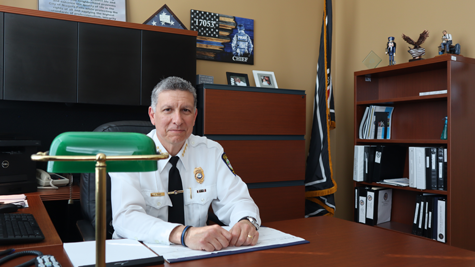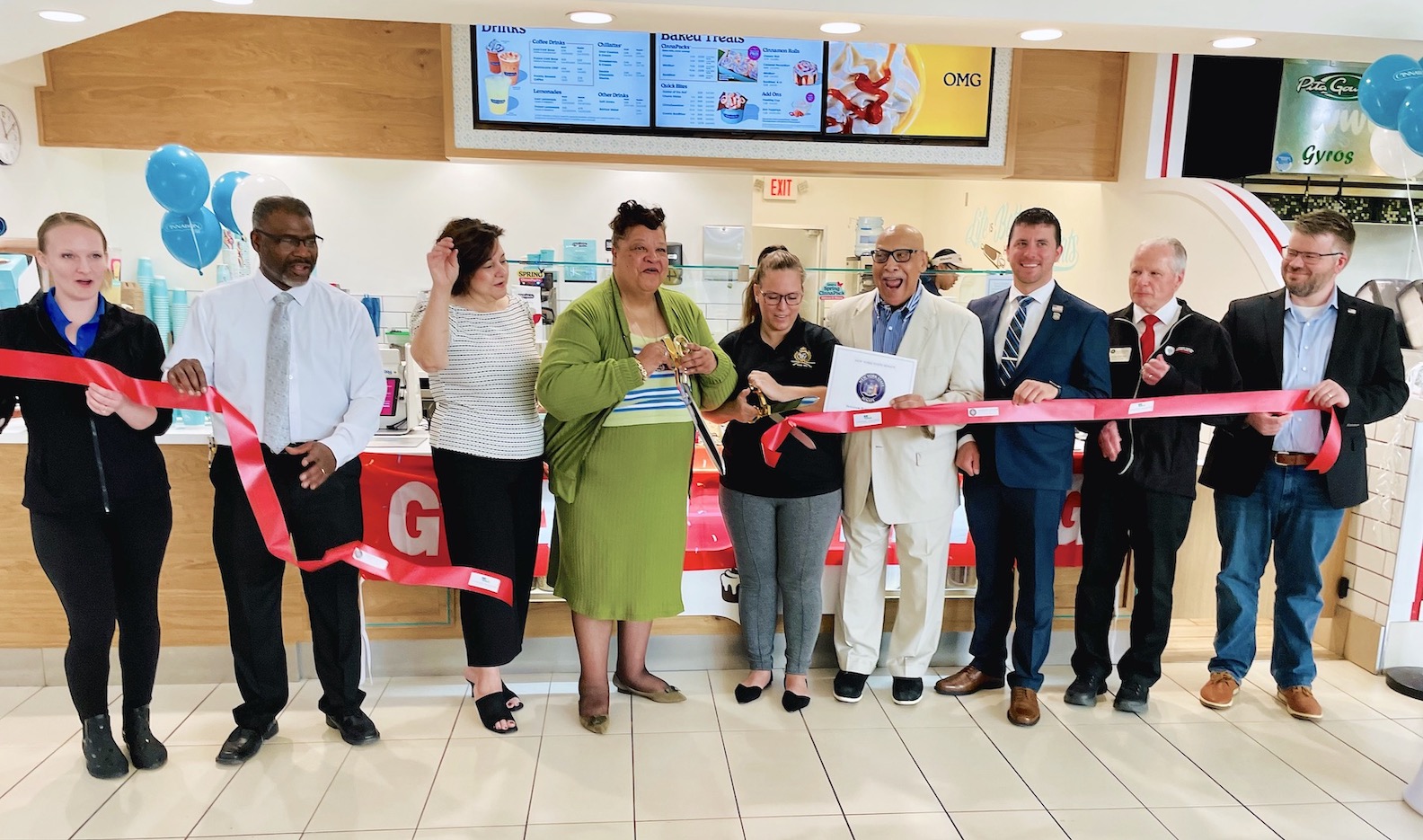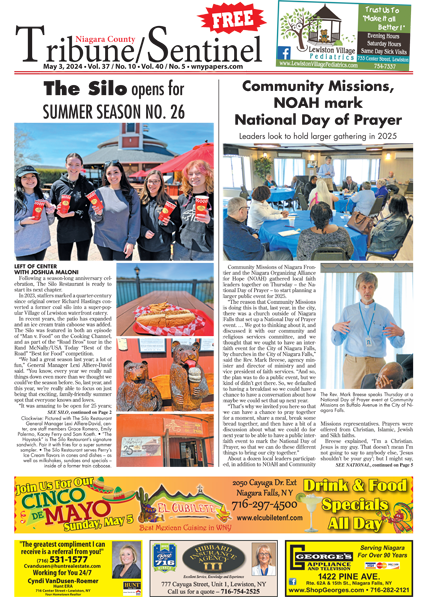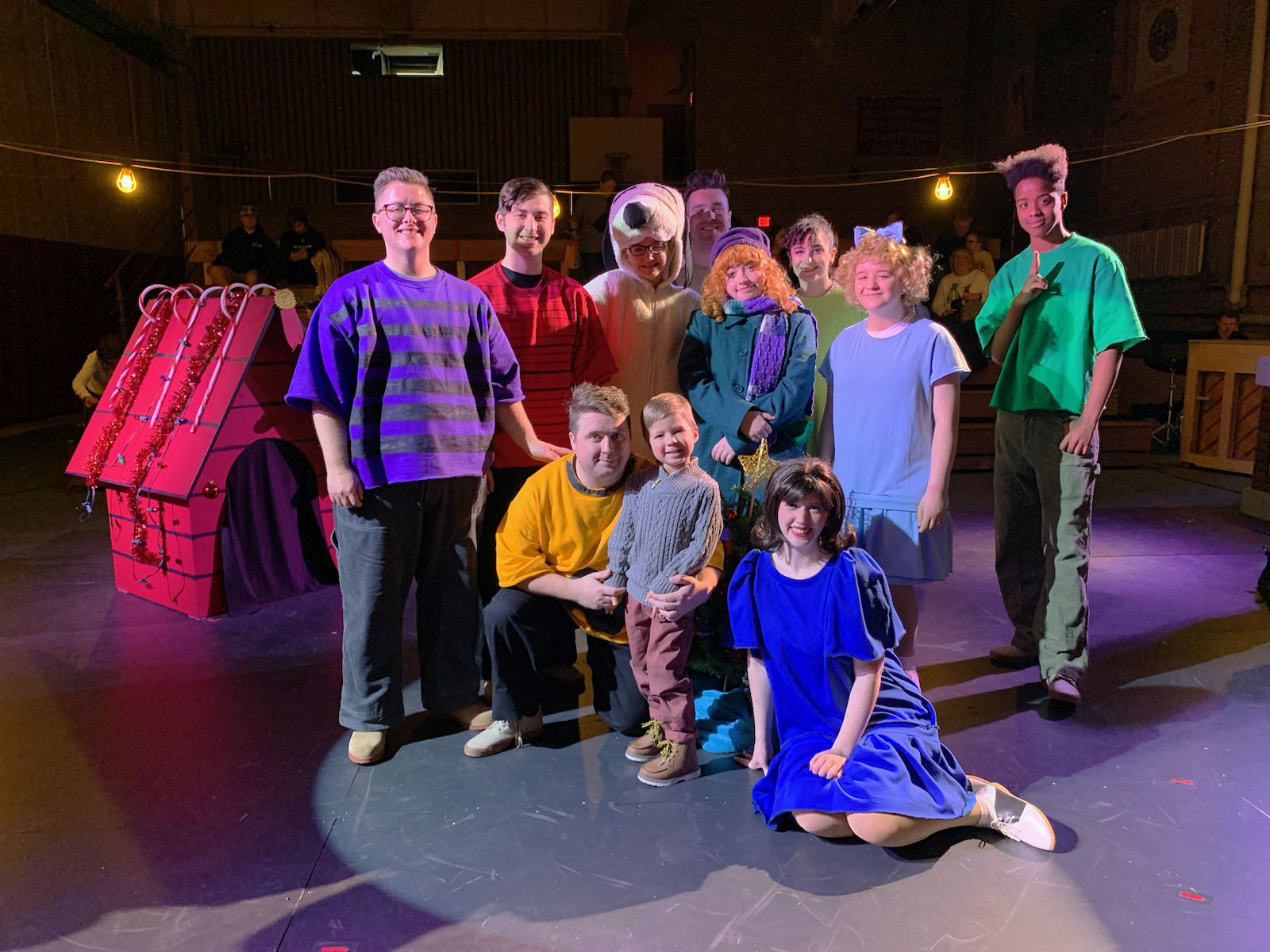Featured News - Current News - Archived News - News Categories
By Michael DePietro
Tribune Editor
On March 1, John Faso was sworn in as the superintendent of police for the Niagara Falls Police Department. He had been acting as the interim chief for the department since December, after the retirement of the former police chief, Thomas Licata.
Recently, the Tribune/Sentinel sat down with Faso to discuss his history and connection with the City of Niagara Falls, his 27-year career in law enforcement, and the challenges presented by the turbulent times in which he enters his new position.
Faso grew up on 3rd Avenue in the Town of Niagara, but he said he spent most of his childhood in the city, as it was where the majority of his family resided. It’s also where he attended school, beginning with 93rd Street Elementary, LaSalle Junior High School and finally LaSalle Senior High School, where he graduated in 1983. He finally moved into the city itself after getting married at the age of 21.
His career in law enforcement began in 1995 when he was hired by the city after completing training at the Niagara County Law Enforcement Academy. From 1995 to 2000, he was a patrolman working the 4 to midnight afternoon shift. By early 2000, Faso had transitioned to the roving anti-crime unit, where he worked until 2001 when he was promoted to detective. During that time, he worked both for NFPD’s narcotics intelligence division and was also assigned to the Niagara County Drug Taskforce for three years. He continued to work for the narcotics intelligence division until 2013 when he was accepted the co-director position at the Niagara County Law Enforcement Academy. It was there he worked until he became the deputy superintendent in 2020.
2020 was – to put it mildly – a challenging year for Americans as a whole. However, it was a particularly unprecedented year for law enforcement officials. The obvious starting point for talking about last year is certainly the pandemic. When asked about some of the specific challenges COVID-19 presented for law enforcement, Faso said he could, “talk for the next two hours about that.”
“There was no script for this. There’s no way to plan for this. We just jumped into it and you know, everybody’s learning is as we go,” he said. “COVID affected every aspect of our operations. We had to come up with new protocols on how to react to this ... just our officers dealing with the public. … If you get a civilian with a known exposure, you know, we’re ‘essential workers.’ We had a different set of protocols that we had to follow. ...
“For a while, we stopped responding to non-emergency calls. We have the luxury of having online reporting. So, in cases where people would call for an officer for a non-emergency situation – and we would (normally) be more than happy to send an officer – we stopped doing that in the beginning. We would direct people to the website to file an online report. For certain situations, an officer would do telephone reports; basically, you’d call in your complaint over the phone and the officer would do the report for you over the phone.
“In the beginning, getting PPE – (everyone) knows what a nightmare that was. It was a bigger nightmare for us because ... we were sending guys out; men and women out that are dealing with people and we don’t (know if they’re infected). So, the PPE was a huge problem to begin with. ... It’s something nobody’s – we’ve never had to wear (face protection before). I mean, it’s never happened before in our generation; in our lifetime. That was a huge challenge.”
Faso said, despite early issues with PPE supplies, he took to heart how so many in the community stepped up to donate to the NFPD whatever they could.
“It’s been a wild ride, but people have been really good. We’ve had people and different businesses donating PPE, and everything else which has been a huge, huge help,” Faso said.
Beyond PPE, the coronavirus created a litany of other issues for the NFPD.
“We’ve had officers that came down with COVID, and dealing with the loss of manpower was a huge challenge,” Faso said. “Then, once the vaccine came into play, that was another challenge. I mean, first of all, organizing over a hundred (officers to get the vaccine) and then the fact that … we were in (a group eligible for the vaccine) 1B, so we weren’t the first (to get the shot), we were second. But you have guys getting the vaccine and then going home to their family (who might not have been eligible yet). … It’s tough to deal with. But it has definitely been a plus for us having the vaccine available.”
Faso explained the processes and challenges of having to enforce mask mandates and other requirements stipulated by the state. Often, alerts would come in either via the state or the county health department usually regarding a business where the mandate wasn’t being followed.
“Most of the time, for instance, if we got a complaint about a certain business not following protocols, I had one officer assigned to this and they would go and give them a copy of the executive order; answer any other questions, and just let them know, ‘This is what you need to do to comply.’ And that’s, for the most part, how we left it,” Faso said. “I think ... a lot of it sometimes was not their fault. Let’s face it: There were a lot of changes, sometimes changing on a daily basis. … So, our part was partly educational and educating people on what they needed to do and assisting them to comply because, again, it changed. It changed for us, even our protocols for first responders. … It was confusing and it still is at times, but at least we’re hopefully around the tale end.”

Niagara Falls Police Department Police Superintendent John Faso discusses taking over the job amid one of the most turbulent periods in American history.
••••••••
COVID-19, of course, wasn’t the only event from 2020 to greatly concern or affect police.
On May 25, the murder of George Floyd at the hands of then-Minneapolis police officer Derek Chauvin sparked nationwide protests, including many across Western New York. Niagara Falls gained national attention during one such protest when Mayor Robert Restaino and then-Police Chief Licata took a knee in solidarity with protestors.
Faso, who was deputy superintendent at the time, discussed the moment and how the NFPD’s efforts to increase communication with community members helped keep the events peaceful.
“I’ve talked a lot about this in different groups out in the community, because it’s a positive thing for Niagara Falls. … We had protests; people following their right to protest and be vocal; but we didn’t have the violence, thankfully. And that speaks a lot about the people of Niagara Falls, in my opinion,” Faso said. He noted police were in constant communication with protest organizers. “We knew exactly what they were going to do, because they communicated with us. And we were there, we had officers working, but it was more observing than anything else. They had a message to get across; they got it across, but they did it right and that says a lot, in my opinion. ... It worked out. I think it went well.”
The protests, in turn, sparked a nationwide police reform movement. In New York, Gov. Andrew Cuomo issued executive order 203, which required municipalities across the state to draft and adopt comprehensive police reform plans. The City of Niagara Falls signed one into effect on March 17.
However, Faso said the city’s own police reforms had actually first begun taking place around 2010. The NFPD, at the time, was put under a consent decree by the governor to create new policies governing police practices in response to claims of excessive force and police misconduct.
“Working with the state attorney general’s office, there were things that we needed to do to change in that consent decree that gave us a lot of advantage,” Faso said. “We’ve rewrote many of our policies to comply with the consent decree, everything from citizen encounters; our use of force policy; we have an office of professional standards; the complaint intake policy – we changed a lot. So when it came time for this reform, we already had a lot of things in motion. We basically tweaked a little bit, to comply with the executive order, but it worked out good.”
In November 2015, the city and the NFPD were deemed by the court-appointed independent auditor and the New York state attorney general to have achieved compliance with all required sections of the decree.
Per executive order 203, a committee appointed by the mayor met with community members over the past few months to hear feedback and opinions about possible reforms. Faso said he was pleased with those conversations and that he aims to see those conversations with community members continue.
“The conversations in the meetings – I actually enjoy them,” Faso said. “It wasn’t, ‘Let’s go beat up on the police,’ it was actually, ‘This is what we see; this is what we think needs to be changed.’ And we came up with ideas on how to change. And it was excellent. It turned out really well. We have a committee set up now where we can get together with people on a regular basis and, if people have something to bring to our attention, that’s an avenue they can do so.”
Faso said those conversations and community discourse are a key part of why the Niagara Falls protests stayed peaceful while perhaps those elsewhere did not. He said the NFPD’s desire to listen and understand the frustrations of its community is what made the gesture of kneeling one of solidarity rather than a simple de-escalation technique.
“I’ve been in this job going on 27 years. A lot of people out in the community I’ve dealt with, you build relationships,” Faso said. “I believe we have an excellent community relations unit. And getting out there and actually being involved in the community, not just policing, but community policing. I’m a huge proponent of community policing, and that that’s how relationships get built. The relationships don’t get built by sitting behind a desk and talking to reporters, you know what I mean? It’s getting out there and listening to the people.
“A lot of times what I’ve learned over the years is people just want to be heard. Maybe I don’t have a solution to their problem, but I listen and don’t dismiss them. Realize, if somebody’s bringing it up to your attention, it’s their problem – it’s a real problem – and a lot of people just want to be heard; and we, together, come up with solutions and just listen.
“Over the years, we’ve had some really good people coming through that unit that really take it to heart and try to do a good job and get out there in the public and interact with people and that’s the key. Again, we’re lucky in Niagara Falls because it’s a smaller city and we could do that and make a bigger impact.”
Faso said the NFPD has tentative plans for a number of outreach events this summer. However, “nothing is written in stone yet,” due to the pandemic. The NFPD Facebook page, @NFPoliceDepartment, which also features a monthly newsletter of department updates, is a good way to keep up to date on NFPD news and events. Additionally, residents can contact the Falls Police community relations division and the office of professional standards at 716-286-4532.
In terms of community discourse, Faso said he has also been meeting regularly with Men Standing Strong Together, a NOAH (Niagara Organizing Alliance for Hope) member organization. He encouraged residents to take part in those conversations. For more information, join the organization’s Facebook group at www.facebook.com/groups/993264364519351/?ref=share, or call NOAH at 716-285-3590.
With one of the worst years on record in the rearview, Faso discussed some of the positive things he sees in his job that have kept him coming back since 1995. He also noted a few things the police department is looking forward to.
“I see all of the positives in this city,” Faso said, smiling. “I mean, every city has its problems, (but) the people of this city are great people. Just walk down the street. We know the complainers and the negative people are the ones that are heard the most but, if you get out there in the city and talk to people one-on-one, you see a different aspect of the city.
“I’m looking forward to getting my patrol men and women out there doing more community relations events. One of the things I’m going to institute is – we’ve already started on a limited basis, it’s all weather driven – but back when I was on patrol, we had something called structure patrol, and that’s when a police officer basically parks their car and gets out and walks. We still do it, but I’m going to change it up a little. This summer, these guys are going to do that, but they’re going to get out into the neighborhoods. The tourist areas and the business areas are going to get their attention, but I want my guys and girls to get out there in the neighborhoods and do their foot patrols in the neighborhoods and interact with the people of the city and let them see them us there. That’s basically what I’m looking forward to the most.”





























